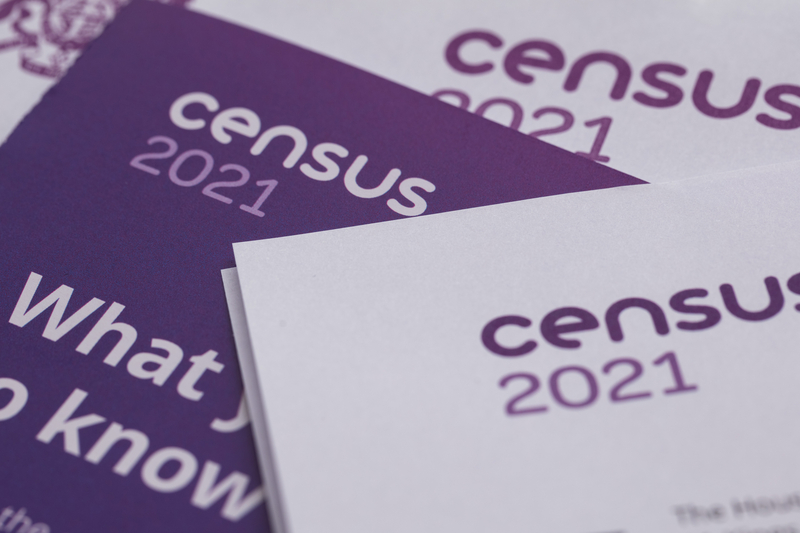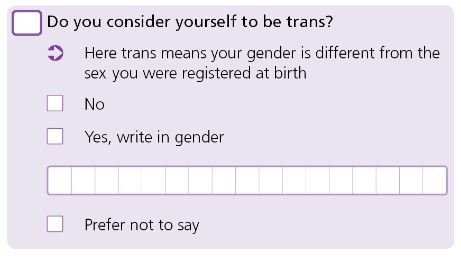Did you know the 2021 census is taking place on Sunday, March 21?

The census is a once-in-a-decade survey that provides a snapshot of households in England and Wales, and helps to plan and fund public services and for the first time, it will be run mainly online, making it easy for most people to complete the questionnaire on any device. However, paper census questionnaires are available for those who need them.
Help Is On Hand For The 2021 Census
The Office for National Statistics (ONS) has appointed Amy Hollis to be Walsall’s census engagement manager and she will be on hand, with a team of census staff, to support residents and help make Census 2021 a success.
Her role is to help organisations, charities, faith groups and community leaders within the borough raise awareness of the census and to highlight the value of it to residents. She will also be managing a team of community advisers, who will be working in the borough to ensure people complete the census.

Councillor Garry Perry, deputy leader for resilient communities said: “Although Covid-19 has stopped a lot of things from happening, it isn’t stopping the census from taking place. I’m pleased about that because the information people give will help inform how public services are planned and funded. Ultimately, it ensures funds are invested to meet the population’s need in emergency services, health care, school places and other vital services.
“Our communications team is already working closely with the regional census engagement manager to provide expert local knowledge on how to reach all of our communities and I know our community and faith organisations will step up, as they always do, to support us in assisting any residents who may need some help.
Census History Dates Back To Domesday Book
“The history of the census is fascinating; I’m sure most of us have a memory of being taught at school about William the Conqueror ordering the production of the Domesday Book. This detailed inventory of land and property was a huge undertaking at the time, taking several years to complete. I’m sure the staff at the Office for National Statistics are very thankful for modern technology.

“There is historical rivalry between people from Bloxwich and Walsall and it’s amusing to think of all the heated arguments in pubs over the years, with the final insult from the Bloxwich man possibly being to point out that Walsall isn’t even in the Domesday Book!”
New Questions For The 2021 Census
The 2021 census will include a new question on UK Armed Forces veterans, as well as voluntary questions, for those aged 16 and over, on sexual orientation and gender identity.
Although results from the census will be available in 2022, all personal records will be locked away for 100 years and kept safe for future generations.

Pete Benton, director of census and survey operations, said: “The census engagement managers and community advisers we have appointed have a critical role in making sure everyone understands why the census is important and making sure all households across England and Wales know why it is important to take part and how to get the help they need.”
He stressed that all census staff will operate in line with the Government’s latest Covid-19 guidance.
What Is The Census?
-
- The census is a survey that takes place every 10 years and provides government with the most accurate estimate of all the people and households in England and Wales.
-
- It asks questions about you, your household and your home, helping to build up detailed information about society at a local and national level. All the information you provide is anonymous and the actual records are locked away for 100 years to safeguard privacy.
-
- Information from the census helps the government and local authorities to plan and fund services, such as education, doctors’ surgeries and roads.
- The Office for National Statistics (ONS) is responsible for planning and running the census in England and Wales.

Is Your Data Private?
- No personal information is released when the census statistics are published, so you cannot be identified.
- The ONS, which is responsible for the census, does not sell your personal information and everyone working on the census has to sign the Census Confidentiality, which means it is a crime to share personal information unlawfully.
- The ONS is governed by several laws, including The Data protection Act 2018 and The Census Act 1920, and it also follows strict security procedures to protect data.

Do You Have To Complete The UK 2021 Census?
Yes – you have to complete the census by law. If you do not, or if you supply false information, you could be fined up to £1,000. Some questions on the census are labelled as voluntary – you do not have to answer those, if you do not wish to.
How is your information used?
Information gathered in the census helps organisations plan for the future, such as local government that uses the data to plan services, such as schools, hospitals and rubbish collection, while businesses use the information to decide where to set up, which creates job opportunities. Charities also use census information to help get the funding they need.
In 100 years’ time, your relations will be able to look up the census details from 2021 when researching their family history.
Full List of Census 2021 Questions
Some of the questions in the survey are voluntary and others have multiple choice answers.
- What is your name?
- What is your date of birth?
- What is your sex?
- On 21 March 2021, what is your legal marital or registered civil partnership status?
- Who is (was) your legal marriage or registered civil partnership to?
- Do you stay at another address for more than 30 days a year?
- What is that address?
- Are you a schoolchild or student in full-time education?
- During term time, where do you usually live?
- What is your country of birth?
- If you were not born in the United Kingdom, when did you most recently arrive to live here?
- Including the time you have already spent here, how long do you intend to stay in the United Kingdom?
- One year ago, what was your usual address?
- How would you describe your national identity?
- What is your ethnic group?
- What is your religion?
- What is your main language?
- How well can you speak English?
- What passports do you hold?
- How is your health in general?
- Do you have any physical or mental health conditions or illnesses lasting or expected to last 12 months or more?
- Do any of your conditions or illnesses reduce your ability to carry out day-to-day activities?
- Do you look after, or give any help or support to, anyone because they have long-term physical or mental health conditions or illnesses, or problems related to old age?
- If you are aged 16 or over go to 26 – if you are aged 15 or under go to 51
- Which of the following best describes your sexual orientation?
- Is the gender you identify with the same as your sex registered at birth?
- Have you completed an apprenticeship?
- Have you achieved a qualification at degree level or above?
- Have you achieved any other qualifications?
- Have you previously served in the UK Armed Forces?
- In the last seven days, were you doing any of the following?
- Which of the following describes what you were doing in the last seven days?
- In the last four weeks, were you actively looking for any kind of paid work?
- If a job became available now, could you start it within two weeks?
- In the last seven days, were you waiting to start a job already accepted?
- Have you ever done any paid work?
- Answer the remaining questions for your main job or, if not working, your last main job.
- In your main job, what is (was) your employment status?
- What is (was) the name of the organisation or business you work (worked) for?
- What is (was) your full job title?
- Briefly describe what you do (did) in your main job.
- What is (was) the main activity of your organisation, business or freelance work?
- Do (did) you supervise or oversee the work of other employees on a day-to-day basis?
- If you had a job last week go to 47; If you were temporarily away from work last week go to 47; If you did not have a job last week go to 51
- In your main job, how many hours a week do you usually work?
- How do you usually travel to work?
- Where do you mainly work?
- What is the address of your workplace or depot?
Written by Jane Howarth.




